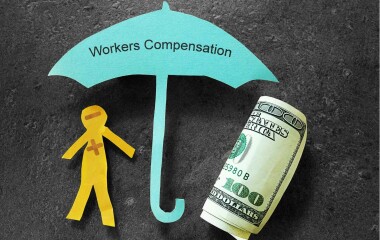Termination by the Employer is a unilateral termination of the employment relationship. It is important for employees to be aware of their rights and to be able to defend themselves in case these rights are violated. This article will outline the basic rights of employees upon termination in accordance with current Czech labor law.
Types of Termination of Employment
An employment relationship can be terminated in several ways:
-
By Agreement – mutual consent of both parties to end the employment relationship (also known as termination by mutual agreement).
-
By Notice – unilateral termination by either the employee or the employer.
-
Immediate Termination – in cases of serious breach of obligations.
-
Termination During the Probationary Period – for any reason or without giving any reason.
-
Expiry of a Fixed-Term Contract – applicable to fixed-term employment contracts.
What Are the Employee’s Rights Upon Termination?
Grounds for Termination
As an employee, you have the fundamental right to know the reason why your employer decided to terminate the employment. The notice of termination must be delivered to you personally in writing. The employer may only terminate the contract for reasons specified by law, and these reasons must be clearly stated in the written notice. Legitimate reasons may be organizational (e.g., closure, relocation, organizational restructuring), health-related (if the employee cannot perform work due to health reasons caused either by the employer or employee), failure to meet the basic conditions for the job, or violations of work discipline and duties.
Protected Periods for Employees
An employer cannot lawfully terminate an employee during certain “protected periods,” such as:
This protection does not apply to all termination reasons (for example, it does not apply in cases of the employer’s closure or part of it).
Prohibition of Discrimination
Termination cannot be based on discriminatory grounds such as gender, age, health status, nationality, religion, sexual orientation, etc.
Examples of discrimination include:
-
Terminating a pregnant employee or one starting maternity leave because of her pregnancy or maternity leave.
-
Firing older employees over 55 years old to “hire younger staff.”
-
Dismissing an employee after the employer learns of a chronic illness.
-
Terminating an employee of foreign nationality without objective reason while other employees in the same position remain employed.
Delivery of Termination Notice
As stated, employees must be given an opportunity to familiarize themselves with the termination notice. Employers must prove delivery according to the Labor Code requirements. Refusal to accept the notice by the employee can still be considered valid delivery if convincingly documented by the employer. Only after proper delivery do other aspects of the termination notice become relevant.
Right to Challenge the Termination Legally
Employees have the right to challenge the validity of the termination by filing a lawsuit in court. More details are provided below.
Severance Pay
Severance pay is a one-time financial compensation. An employee is entitled to severance pay upon termination under certain statutory conditions—for example, if the company closes, relocates, or due to organizational changes.
The amount depends on the length of employment:
-
Less than 1 year → 1 times the average monthly wage
-
1–2 years → 2 times the average monthly wage
-
More than 2 years → 3 times the average monthly wage
If the employee loses work capacity due to a work injury or occupational disease, severance pay must be at least 12 times the average monthly wage.
Higher severance pay may be agreed upon in a collective agreement or internal regulations.
Invalid Termination – How Can Employees Defend Themselves?
If you believe your termination was invalid, you may:
-
Notify your employer in writing that you insist on continuing your employment.
-
File a lawsuit with the court to declare the termination invalid (within 2 months from the termination date). The court will then assess whether the termination was lawful and decide if your rights were violated.
Requirements for a Lawsuit Challenging Termination
When filing a lawsuit, the employee must:
-
Include all standard requirements such as details of the parties, description of the case, and the requested decision.
-
Clearly specify the reasons for considering the termination invalid, both factual and legal.
-
Provide evidence of written notification to the employer insisting on continued employment. This is necessary to claim financial compensation (wages from notification until court decision).
In some cases, employers may agree to an amicable settlement, often involving financial compensation. If no settlement is reached, the court decides on the validity.
Common Grounds for Invalid Termination
Termination may be invalid if:
-
The employer does not state a lawful reason or the reason is unclear or false.
-
The termination occurs during a protected period (e.g., pregnancy, sick leave).
-
The termination notice is not in writing.
-
The termination is based on discrimination (gender, age, health status).
Practical Advice for Protecting Employee Rights Upon Termination
-
Always demand written form of all documents related to termination — they provide clear evidence if disputes arise.
-
Carefully read all documents before signing and request clarifications if needed.
-
Keep copies of all documents related to your employment.
-
If you disagree with the termination, notify your employer in writing and consider consulting a lawyer.
-
Observe deadlines for objections or lawsuits — e.g., 2 months for filing invalid termination claims. Missing deadlines can prevent legal defense.
-
Request an employment certificate upon termination (confirmation of employment), important for future job prospects.
-
Remain professional even in difficult situations; maintaining positive relations can be beneficial for references or recommendations.
Employee Rights Are on Your Side
Knowing your rights is the first step toward protecting them. Termination of employment is a significant impact on your life, so understanding your options and acting according to the law is crucial. When in doubt, always consult a labor law specialist.
Contact Employee Rights
📞 Phone: +420 773 014 007
📧 Email: info@pravozamestnance.cz
🏢 Via contact form
Social media: Instagram, Facebook , LinkedIn
We protect and enforce employees' rights and strive to improve working conditions in the Czech Republic. We are your support in resolving labor issues.





